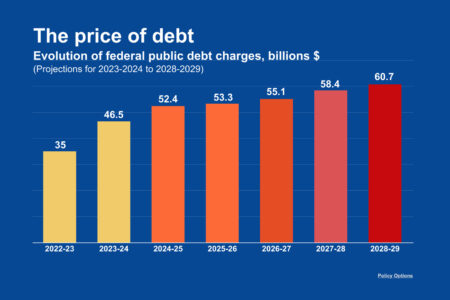
The decision by Justin Trudeau to refuse to answer questions from Sun Media reporters – in the aftermath of a lame, offensive diatribe by one of their television personalities – sparks an interesting debate about the media and its relationship with our elected representatives.
On the one side, you have people worrying about the principle of a politician effectively blacklisting certain members of the press. Some reporters argue this is a slippery slope that might damage freedom of the press. On that point, I’m not sure press freedom is actually at stake here. No one is required to answer anyone’s questions. Freedom of the press is about making sure the government doesn’t restrict journalists; it doesn’t guarantee that reporters land interviews. The suggestion this is ”œcensorship” also misunderstands the concept of censorship.
Other reporters argue politicians do not get to choose which reporters ask questions in a scrum. I suppose the notion that the Parliamentary Press Gallery (PPG) gets to choose who asks questions is a fair organizing principle, but I’m not sure that means a politician is required to submit to it, at least in the sense of being compelled to answer a question. Indeed, when it comes to attending press conferences and scrums, our current prime minister is a notable delinquent, and outside of the scrum context politicians routinely get to choose to accept interview requests, or not.
Nevertheless, on its face, a decision by a politician to boycott an entire news organization instantly runs the risk of looking petty, unprincipled and perhaps even cowardly. For one thing, it doesn’t seem fair to the many reporters who work for Sun Media and who are actually trying to do the legitimate work of reporting. Hell, many of these Sun reporters likely despise having to deal with the reputation their organization earns when it broadcasts or publishes utter garbage that lacks all credibility. They just can’t say so, because they have jobs in journalism, which, like unicorns, are hard to find and even harder to keep.
The boycott strategy also raises the risk of giving the low-rated Sun TV attention it so desperately wants. So even just from the perspective of Mr. Trudeau’s self-interest, I’m not sure this is the best strategy.
That said, surely there is a certain point at which we would all draw the line. Mr. Trudeau drew his at a hit job that called his deceased father a ”œslut”. And I hope my reporter friends would at least acknowledge there’s a certain amount of self-interest in touting the broad principle that politicians be expected – nay, required – to address questions from anyone accredited by the PPG, as if there is no correlative duty (even from an organizational rather than individual perspective) to come within several football fields of basic decency or fairness.
But therein lies the fundamental problem: every politician thinks certain media outlets are ”œbiased” or ”œpartisan”. Every media outlet likes to think it is ”œbalanced” and ”œobjective”. It would be a bit of a dangerous game if politicians routinely segregated the media on their own terms. We should want, indeed demand, that our elected leaders face the most challenging, even the most adversarial, line of questions. Answering to a free press is a fundamental feature of basic democracy.
So when all is said and done, I’m not entirely sure where I stand on Trudeau’s decision, other than to raise the following questions: How disreputable does a ”œnews” organization have to be before a politician’s decision to boycott would be palatable? Indeed, at what point is a news organization not actually a news organization? If we expect politicians to answer adversarial, even unfair, questions, do we expect them to do so from only PPG accredited reporters, or from anyone who calls themselves a journalist?
If the former, I think that raises another interesting debate about what organizations/individuals receive accreditation; if the latter, I doubt many would expect Trudeau to be compelled to answer questions from your average Internet troll.
So where is that line? It is ultimately the public who gets to decide who crossed it: Sun Media for disseminating garbage or Trudeau for boycotting reporters who aren’t responsible for it.
Photo by Joe Pacione / CC BY-NC 2.0 / modified from original







